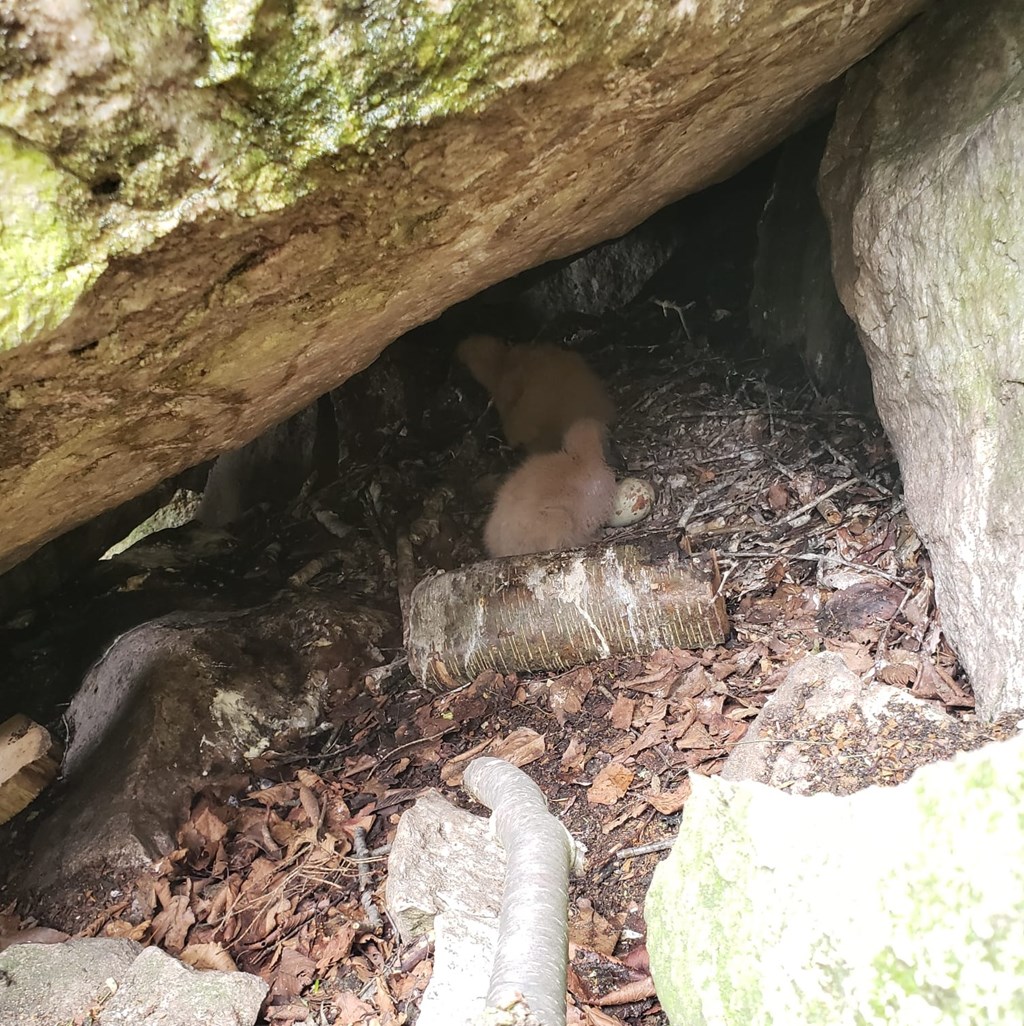Trainee Alumni Describe Unique Black Vulture Breeding Behavior in New Paper with Hawk Mountain
Posted on September 05, 2025 in Science

International Vulture Awareness Day is off to a flying start with the publication of a paper from conservation science trainee alumni Diego Gallego-García, Ph.D., and Matthew Bowers, M.Sc. The paper, coauthored by Hawk Mountain’s Bracken Brown and David Barber, describes a never-before-seen breeding behavior in black vultures and raises many questions about their reproductive biology.
The paper, titled “Anomalous Double-Clutch Laying in the Black Vulture (Coragyps atratus): Replacement Eggs or Biochemical Alterations of the Breeding Cycle?”, describes the first documented case of double-clutching behavior in black vultures in northeastern North America, a phenomenon that was observed right here at Hawk Mountain Sanctuary.
In 2022, while monitoring an active black vulture nest, trainees noted an unusual discovery: the parents had laid a second clutch in the nest with already hatched nestlings. Typically, hormones control the sequences of reproduction in raptors, so once the first clutch of eggs is laid, parents shift the focus to incubation and hormones naturally quell any additional egg development. Only if the first clutch is destroyed or does not hatch will the parents begin the cycle again and lay a replacement clutch.
With no visible mate replacement, the appearance of a second clutch in the same nest cavity with successfully hatched young from the first clutch presents many questions on reproductive rates and population ecology, and the role of these successful scavengers in the ecosystem. It also leaves the question open to whether feeding on human waste might be altering the biochemical cycles of reproduction timing in black vultures.
As the northernmost range of the black vulture continues to expand, Hawk Mountain researchers and collaborators continue to study all aspects of their breeding ecology and seasonal movements. Vultures and other scavenging raptors play a key role in preserving ecosystem health, so monitoring population trends is critical to ensuring potential threats are detected and addressed early-on.
Read the full paper here: